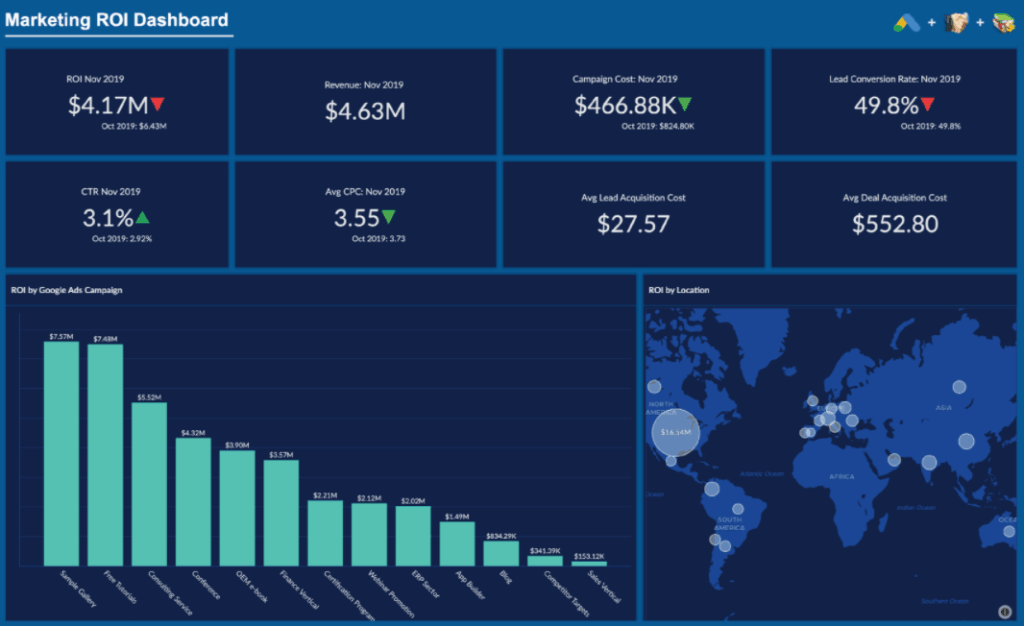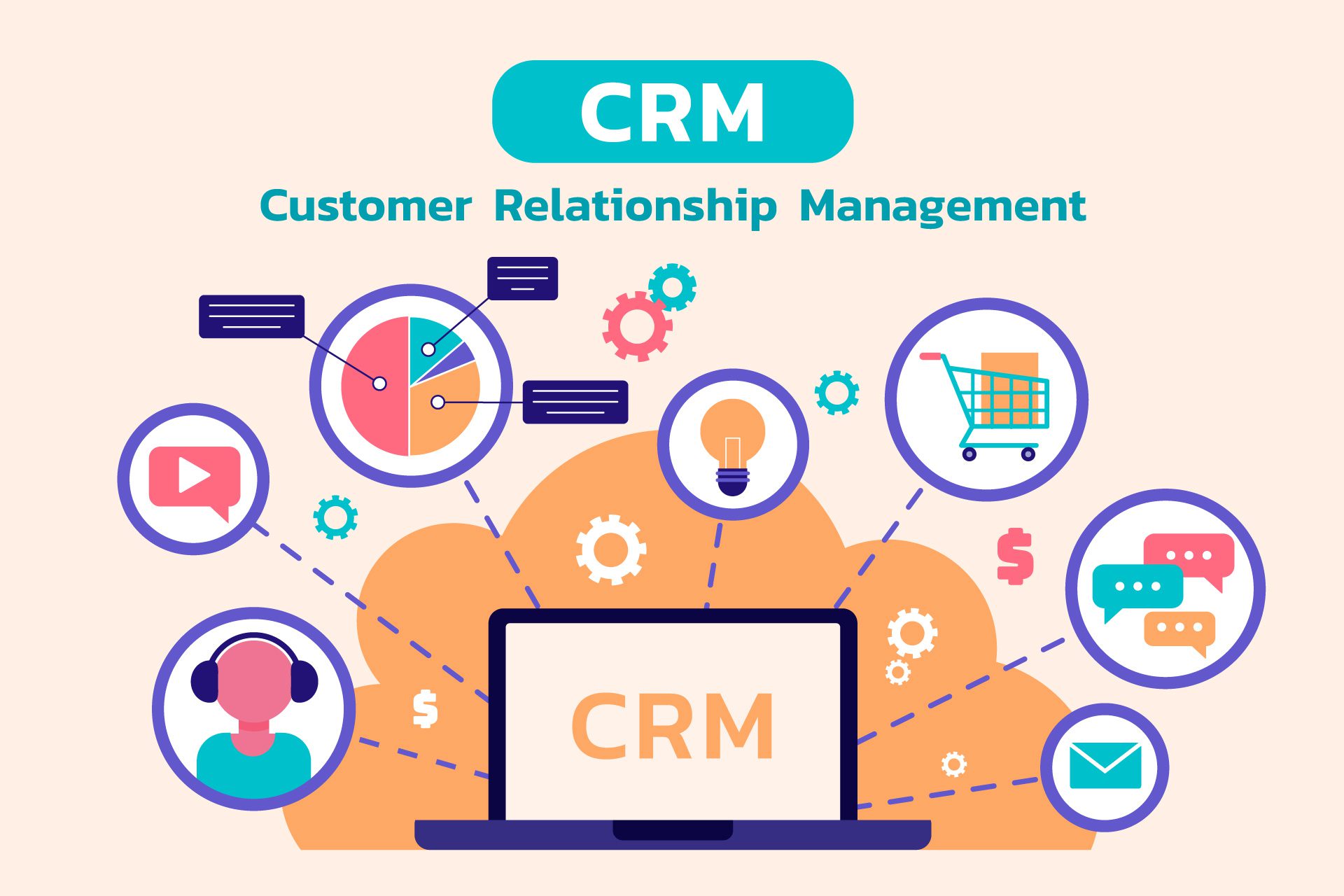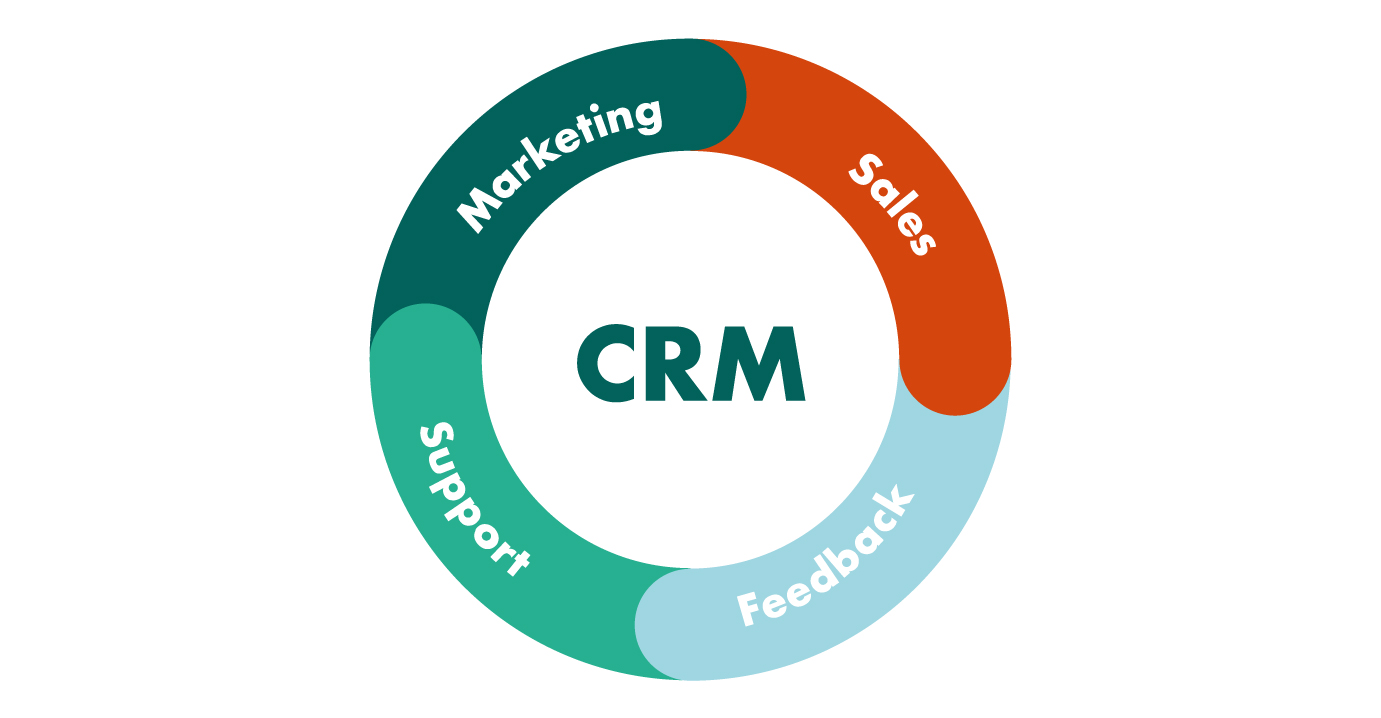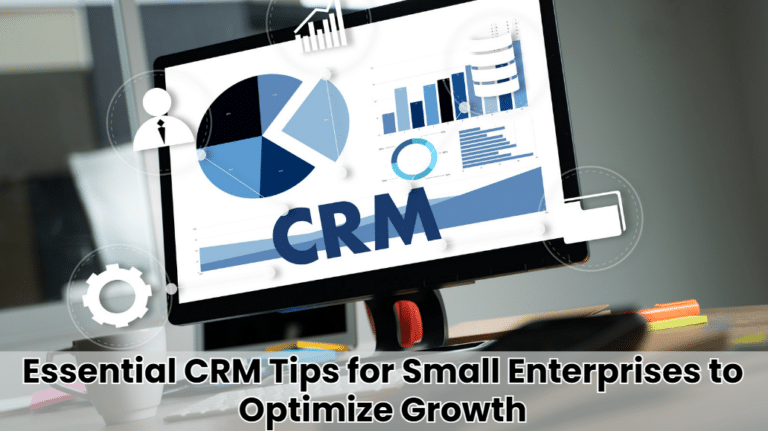
Unlocking the Power of CRM Marketing: A Deep Dive into ROI
In today’s hyper-competitive business landscape, simply having a great product or service isn’t enough. You need to connect with your customers, understand their needs, and build lasting relationships. That’s where Customer Relationship Management (CRM) marketing comes in. It’s not just about managing contacts; it’s about leveraging data and technology to create targeted campaigns, personalize customer experiences, and ultimately, drive significant Return on Investment (ROI).
This article will be your comprehensive guide to mastering CRM marketing. We’ll explore the core principles, delve into practical tips for maximizing ROI, and provide actionable strategies you can implement immediately. Whether you’re a seasoned marketer or just starting out, this resource will equip you with the knowledge and tools to transform your CRM into a powerful engine for growth.
What is CRM Marketing? Understanding the Fundamentals
Before we dive into ROI, let’s establish a solid understanding of what CRM marketing actually entails. CRM marketing is a strategic approach that uses CRM systems to manage and analyze customer interactions and data throughout the customer lifecycle. This data is then used to improve business relationships with customers, assist in customer retention, and drive sales growth.
Essentially, CRM marketing is about:
- Gathering data: Collecting information about your customers, their preferences, and their interactions with your brand.
- Analyzing data: Identifying patterns, trends, and insights that can inform your marketing strategies.
- Personalizing experiences: Tailoring your communications and offers to resonate with individual customers.
- Automating processes: Streamlining repetitive tasks to save time and resources.
- Measuring results: Tracking key metrics to assess the effectiveness of your campaigns and make data-driven decisions.
At its heart, CRM marketing is about building stronger, more profitable customer relationships. It moves beyond transactional interactions and focuses on fostering loyalty and advocacy.
Why CRM Marketing Matters: The ROI Imperative
So, why should you invest in CRM marketing? The answer is simple: ROI. When implemented effectively, CRM marketing can deliver significant returns across various areas of your business.
Here are some key benefits and how they translate into ROI:
- Increased Sales: By understanding customer needs and preferences, you can create more targeted and effective marketing campaigns. This leads to higher conversion rates and increased sales revenue.
- Improved Customer Retention: CRM systems help you build stronger relationships with your customers, making them less likely to switch to a competitor. Retaining existing customers is typically much more cost-effective than acquiring new ones.
- Enhanced Customer Satisfaction: Personalizing customer experiences and providing excellent customer service leads to higher levels of satisfaction and loyalty. Happy customers are more likely to become repeat buyers and brand advocates.
- Reduced Marketing Costs: CRM systems allow you to segment your audience and target your marketing efforts more efficiently, reducing wasted spend and improving the overall effectiveness of your campaigns.
- Improved Operational Efficiency: Automating tasks and streamlining processes frees up your team to focus on more strategic initiatives, leading to increased productivity and lower operational costs.
The ROI of CRM marketing isn’t just about dollars and cents; it’s about building a sustainable, customer-centric business that thrives in the long term.
Key Metrics to Track for CRM Marketing ROI
To accurately measure your CRM marketing ROI, you need to track the right metrics. Here are some of the most important ones:
- Customer Acquisition Cost (CAC): The cost of acquiring a new customer. This includes all marketing and sales expenses associated with attracting and converting a lead.
- Customer Lifetime Value (CLTV): The predicted revenue a customer will generate throughout their relationship with your business.
- Conversion Rate: The percentage of leads who convert into customers.
- Customer Retention Rate: The percentage of customers who remain loyal to your business over a specific period.
- Churn Rate: The percentage of customers who stop doing business with you over a specific period.
- Return on Ad Spend (ROAS): The revenue generated for every dollar spent on advertising.
- Email Open and Click-Through Rates: These metrics help you assess the effectiveness of your email marketing campaigns.
- Website Traffic and Engagement: Tracking website traffic, bounce rates, and time on page provides insights into customer behavior and the effectiveness of your content.
By regularly monitoring these metrics, you can identify areas for improvement, optimize your campaigns, and demonstrate the value of your CRM marketing efforts.
Actionable CRM Marketing ROI Tips: Strategies for Success
Now, let’s get to the good stuff. Here are some practical tips you can implement today to maximize your CRM marketing ROI:
1. Choose the Right CRM System
Selecting the right CRM system is the foundation of successful CRM marketing. Consider these factors:
- Your business needs: What are your specific goals and requirements? Do you need features for sales automation, marketing automation, customer service, or a combination of all three?
- Scalability: Can the system grow with your business?
- Integration capabilities: Does it integrate with your existing tools and platforms, such as your website, email marketing software, and social media channels?
- Ease of use: Is the system user-friendly and intuitive for your team?
- Cost: What is your budget? Consider both the upfront costs and the ongoing subscription fees.
Research different CRM providers and compare their features, pricing, and reviews. Consider a free trial to test the system before committing.
2. Clean and Segment Your Data
Garbage in, garbage out. Your CRM data is only as good as the quality of the information you put into it. Regularly clean your data by:
- Removing duplicates: Merge or delete duplicate contact records.
- Correcting errors: Fix any inaccuracies in names, addresses, or other data fields.
- Updating outdated information: Remove contacts who are no longer relevant or have moved on.
Once your data is clean, segment your audience based on demographics, behavior, purchase history, and other relevant criteria. This allows you to create more targeted and personalized campaigns.
3. Develop Targeted Marketing Campaigns
Don’t send the same message to everyone. Use your segmented data to create campaigns that are relevant to specific customer groups. Consider:
- Email marketing: Send targeted email newsletters, promotional offers, and automated welcome sequences.
- Personalized website content: Display different content to different customer segments based on their interests and behavior.
- Social media advertising: Target your ads to specific customer groups on social media platforms.
- SMS marketing: Send text messages with exclusive offers or important updates.
A/B test different variations of your campaigns to see what resonates best with your audience.
4. Automate Your Marketing Processes
Automation can save you time, reduce errors, and improve efficiency. Use your CRM system to automate tasks such as:
- Lead nurturing: Automatically send a series of emails to nurture leads and move them through the sales funnel.
- Workflow automation: Automate tasks such as assigning leads to sales representatives or sending follow-up emails after a purchase.
- Personalized email sequences: Create automated email sequences triggered by specific customer actions or events, such as website visits or abandoned shopping carts.
Automation allows you to focus on more strategic initiatives while ensuring that your customers receive timely and relevant communications.
5. Personalize the Customer Experience
Customers expect personalized experiences. Use your CRM data to:
- Address customers by name: Personalize your emails and other communications.
- Recommend products based on past purchases: Offer relevant products or services based on a customer’s purchase history.
- Provide personalized website content: Display content that is relevant to a customer’s interests and behavior.
- Offer personalized customer service: Provide tailored support based on a customer’s needs and preferences.
Personalization builds stronger relationships and increases customer loyalty.
6. Track and Analyze Your Results
Regularly monitor your key metrics to assess the effectiveness of your campaigns. Use your CRM system’s reporting and analytics features to:
- Track conversion rates: Monitor how many leads are converting into customers.
- Measure customer lifetime value: Calculate the predicted revenue a customer will generate throughout their relationship with your business.
- Analyze customer retention rates: Determine how many customers are staying loyal to your business.
- Identify areas for improvement: Use your data to identify areas where you can optimize your campaigns and improve your ROI.
Don’t be afraid to experiment and iterate. Use your data to make data-driven decisions and continuously improve your CRM marketing efforts.
7. Integrate Your CRM with Other Tools
To maximize the power of your CRM, integrate it with other tools and platforms, such as:
- Email marketing software: Integrate your CRM with your email marketing platform to streamline your email campaigns.
- Social media platforms: Integrate your CRM with your social media channels to track customer interactions and manage your social media presence.
- E-commerce platforms: Integrate your CRM with your e-commerce platform to track customer purchases and personalize the shopping experience.
- Customer service software: Integrate your CRM with your customer service software to provide seamless customer support.
Integration allows you to create a unified view of your customer data and streamline your marketing and sales processes.
8. Invest in Training and Support
To get the most out of your CRM system, invest in training and support for your team. Provide training on how to use the system effectively, how to segment your audience, and how to create targeted marketing campaigns. Consider:
- Internal training sessions: Conduct regular training sessions for your team.
- Online tutorials and resources: Provide access to online tutorials and resources.
- Vendor support: Utilize the support resources provided by your CRM vendor.
- Consulting services: Consider hiring a CRM consultant to help you optimize your CRM strategy.
A well-trained team is essential for maximizing your CRM marketing ROI.
9. Prioritize Mobile Optimization
In today’s mobile-first world, it’s essential to optimize your CRM marketing efforts for mobile devices. Ensure that your emails, website content, and other marketing materials are responsive and easy to view on smartphones and tablets. Consider:
- Mobile-friendly email templates: Use email templates that are designed to display correctly on mobile devices.
- Responsive website design: Ensure that your website is responsive and adapts to different screen sizes.
- SMS marketing: Use SMS marketing to send short, concise messages to your customers.
- Mobile apps: Consider developing a mobile app to provide a better customer experience.
Mobile optimization ensures that your customers can easily access your marketing materials and engage with your brand on the go.
10. Foster a Culture of Continuous Improvement
CRM marketing is not a one-time project; it’s an ongoing process. Continuously monitor your results, experiment with new strategies, and make data-driven decisions to improve your ROI. Foster a culture of continuous improvement by:
- Regularly reviewing your key metrics: Track your progress and identify areas for improvement.
- Experimenting with new strategies: Try new approaches and see what works best for your business.
- Gathering customer feedback: Ask for feedback from your customers to understand their needs and preferences.
- Staying up-to-date with industry trends: Keep abreast of the latest CRM marketing trends and best practices.
By embracing a culture of continuous improvement, you can ensure that your CRM marketing efforts are always evolving and delivering the best possible results.
Common Mistakes to Avoid in CRM Marketing
While CRM marketing offers significant benefits, several common mistakes can hinder your efforts. Avoiding these pitfalls can significantly improve your ROI.
- Ignoring Data Quality: As mentioned earlier, poor data quality can undermine your entire CRM strategy. Ensure your data is clean, accurate, and up-to-date.
- Failing to Segment Your Audience: Sending generic messages to your entire customer base is a recipe for low engagement. Segment your audience based on relevant criteria and tailor your messaging accordingly.
- Neglecting Personalization: Customers expect personalized experiences. Failing to address them by name, recommend relevant products, or tailor content to their interests can lead to disengagement.
- Lack of Automation: Manually performing repetitive tasks is inefficient and time-consuming. Automate your marketing processes to save time, reduce errors, and improve efficiency.
- Ignoring Mobile Optimization: In today’s mobile-first world, neglecting mobile optimization can lead to a poor customer experience and lost opportunities.
- Not Tracking and Analyzing Results: Without tracking your key metrics, you won’t know what’s working and what’s not. Regularly monitor your results and make data-driven decisions.
- Choosing the Wrong CRM System: Selecting a CRM system that doesn’t meet your business needs or integrate with your existing tools can be a costly mistake.
- Poor Training and Adoption: If your team isn’t properly trained on how to use the CRM system, they won’t be able to leverage its full potential.
- Not Integrating CRM with Other Tools: Failing to integrate your CRM with other tools and platforms can limit its functionality and hinder your marketing efforts.
- Setting Unrealistic Expectations: CRM marketing is not a magic bullet. It takes time, effort, and a strategic approach to see results.
By avoiding these common mistakes, you can set yourself up for success and maximize your CRM marketing ROI.
Real-World Examples: CRM Marketing Success Stories
Learning from real-world examples can be a powerful motivator. Here are a few examples of how businesses have successfully used CRM marketing to drive ROI:
- Amazon: Amazon’s success is largely attributed to its sophisticated CRM marketing. They use customer data to personalize product recommendations, send targeted email campaigns, and provide a seamless shopping experience. This leads to increased sales, customer loyalty, and ultimately, a significant ROI.
- Starbucks: Starbucks leverages its CRM system to power its loyalty program. By tracking customer purchases and preferences, they offer personalized rewards, promotions, and experiences. This has resulted in increased customer engagement, repeat business, and a strong brand reputation.
- Netflix: Netflix uses CRM marketing to personalize its content recommendations and provide a customized viewing experience. They analyze customer viewing habits and preferences to suggest movies and shows they are likely to enjoy. This leads to increased customer satisfaction, longer viewing times, and higher subscription rates.
- Salesforce: Salesforce, a leading CRM provider, uses its own CRM system to manage its sales, marketing, and customer service efforts. They leverage customer data to personalize their communications, improve their sales processes, and provide excellent customer support. This has resulted in increased sales, customer satisfaction, and a strong brand reputation.
These examples demonstrate the power of CRM marketing to drive ROI across various industries and business models.
The Future of CRM Marketing: Trends to Watch
The landscape of CRM marketing is constantly evolving. Staying ahead of the curve requires understanding the latest trends. Here are some trends to watch:
- Artificial Intelligence (AI): AI is transforming CRM marketing by automating tasks, personalizing customer experiences, and providing data-driven insights. Expect to see more AI-powered chatbots, predictive analytics, and personalized recommendations.
- Hyper-Personalization: Customers expect increasingly personalized experiences. Marketers are moving beyond basic personalization to create hyper-personalized campaigns that are tailored to individual customer needs and preferences.
- Omnichannel Marketing: Customers interact with businesses across multiple channels, including email, social media, and mobile. Omnichannel marketing aims to provide a seamless and consistent customer experience across all channels.
- Privacy and Data Security: With growing concerns about data privacy, businesses must prioritize data security and transparency. This includes obtaining customer consent, being transparent about how data is used, and complying with data privacy regulations.
- Customer Data Platforms (CDPs): CDPs are becoming increasingly popular as a way to collect, unify, and analyze customer data from multiple sources. This provides a more complete view of the customer and enables more effective marketing campaigns.
- Voice Search and Chatbots: Voice search and chatbots are becoming increasingly popular ways for customers to interact with businesses. Marketers are adapting their strategies to incorporate these technologies.
Staying informed about these trends will help you stay ahead of the competition and maximize your CRM marketing ROI in the years to come.
Conclusion: Embracing CRM Marketing for Long-Term Success
CRM marketing is no longer optional; it’s essential for success in today’s business environment. By implementing the tips and strategies outlined in this article, you can transform your CRM into a powerful engine for growth. Remember to choose the right CRM system, clean and segment your data, develop targeted campaigns, automate your marketing processes, personalize the customer experience, track and analyze your results, integrate your CRM with other tools, invest in training and support, prioritize mobile optimization, and foster a culture of continuous improvement.
By embracing CRM marketing, you can build stronger customer relationships, increase sales, improve customer retention, enhance customer satisfaction, reduce marketing costs, and improve operational efficiency. The benefits are clear: a higher ROI and a more sustainable, customer-centric business. So, take action today and start leveraging the power of CRM marketing to boost your bottom line and achieve long-term success. The time to invest is now.



